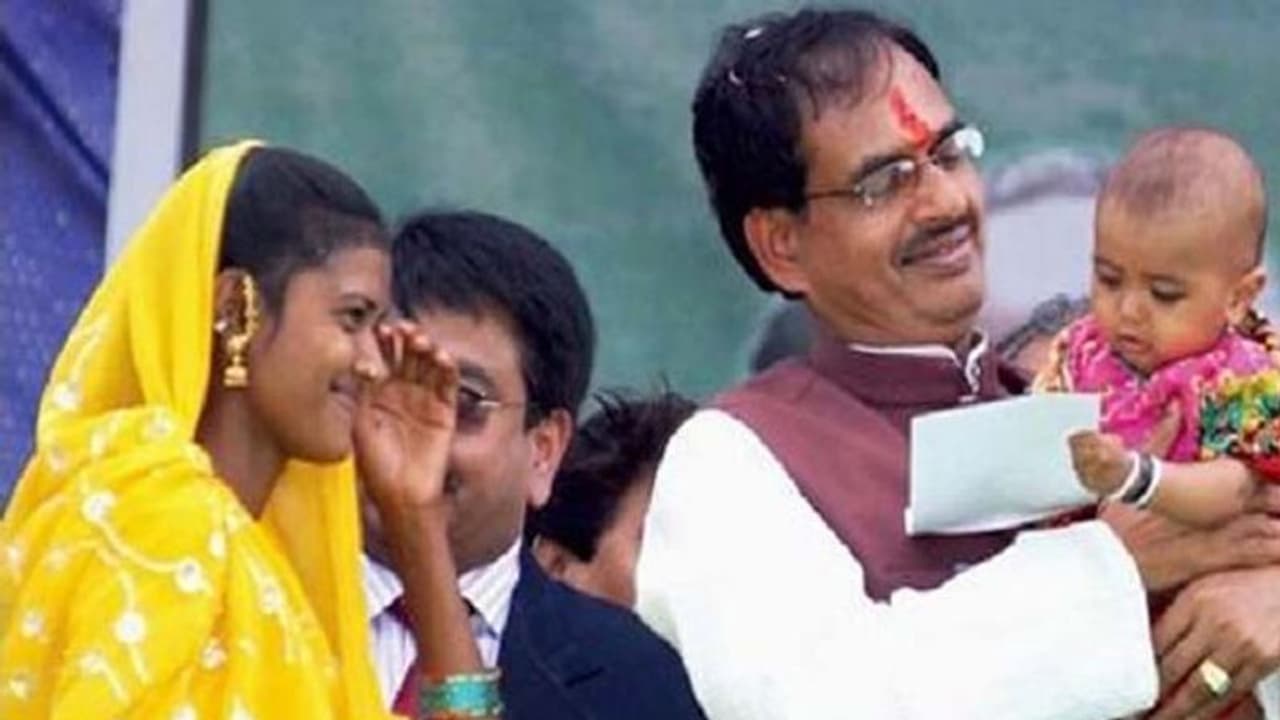Chief minister Shivraj Singh Chouhan says it is not for nothing that the women of Madhya Pradesh view him as beta, bhai or mama. The party manifesto, unveiled in the presence of Union finance minister Arun Jaitley, enumerates BJP's 'pro-farmer' policy and promises more to the agricultural class.
Bhopal: The Madhya Pradesh unit of the BJP on Saturday posted another first by coming out with a separate manifesto for women titled the Nari Shakti Sankalp Patra apart from the regular Drishti Patra (vision document) for the 2018 Assembly poll. The twin manifestos were released at a crowded press conference in Bhopal by Union Minister Arun Jaitley and chief minister Shivraj Singh Chouhan.
Chouhan said his regime in the last 13 years had ensured that women of all ages, regardless of their background, were given a special place in all development schemes. This is the main reason why women looked upon him as their beta, bhai, or mama.
Considerable attention had been paid to the general education, health, employment and security of women, the chief minister said. He says the Ladli Laxmi Yojana have become a template for every state to follow. Twenty-seven lakh women have benefited from the scheme since its inception. All school going girls have been recipients of free bicycles. The cost of their higher education is also being borne by the state. Fifty per cent seats were reserved for women in all panchayats and urban self-help groups. Over 23 lakh woman had benefitted from 2,00,000 such groups. This has made them self-dependent and confident. Now the benefits will be taken to the next level:
Highlights of BJP’s women-centred manifesto
- The Swagat Laxmi Yojana, in which the birth of a girl was accorded a special welcome, will be streamlined with other schemes pertaining to their education and health
- Schoolgoing girls obtaining 75% marks in Class 12 will now be given a scooty (a small scooter) and the cost of the vehicle's registration also borne by the state
- The number of boarding facilities for girls in schools and universities will be doubled; establishment of Vijaya Learning Centres with modern library reading room facilities in all boarding schools for women to be attached to government varsities
- Introduction of free bus services on PPP model for college-going girls who need to commute every day from villages to the nearest school/college
- Installation of sanitary napkin dispensing vending machines (under the new Mukta yojana) in all-girl toilets middle school upward
- Online courses and community colleges will be set up for women whose family circumstances had compelled them to drop out of school or college, but who now wish to resume their studies
- Establishment of special ITIs for women
- Creation of well-paid job openings for women in both semi-agricultural and core industrial sectors
- Putting a special Family Access to Justice Scheme in place to ensure that crimes against women were given the attention they deserved by the police and courts; a statewide MIS system will be introduced in this regard
- Loans for self-employed women at lower rates
Focus: Small farmer
The Madhya Pradesh BJP focussed on the small farmer, too.

The chief minister, who released the document in the presence of Union finance minister Arun Jaitley, said the manifesto was not a mere enumeration of promises but a vision for the next five years. He said considerable developmental progress had been made since 2013.
The total area under irrigation had gone up from 7.5 lakh hectares to a whopping 41 lakh hectares. The target for the next five years was to double the cover. Annual per capita income had risen from Rs 15,000/ in 2003 to Rs 89,000/. Efforts will also be made to double the agricultural growth rate from the current 10% to 20%.
Jaitley, on his part, stressed that the 2018 manifesto had gone well beyond the basics of bijli, sadak, and paani (electricity, roads and water supply), the lack of all three had brought the BJP to power in 2003. The shift to a higher gear had been made possible because Central policies were aligned with that of state needs. The benefits thus had had a trickle-down effect, resulting in greater availability of resources to states.
- Top billing has been given to small farmers who either lack the wherewithal to sell their produce in the mandi or just do not produce enough to take advantage of the Krishak Samriddhi Yojana and the Bhavantar yojana. To compensate them a Laghu Kisan Swavalamban Yojana will be launched under which a bonus proportionate to their land holding and production will be moved into their bank accounts
- Annual loans doled out to co-operative societies will be scaled up to Rs 40,000 crore
- A special Rs 500-crore special fund will be created to enable farmers to procure high yielding seeds and other agricultural implements
- All help will be given by the state to ensure that the soil under tillage retains its fertility. A special scheme will be launched for this purpose. Soil health cards will be issued from time to time to keep farmers informed on how best to keep their land in ship-shape
- Opening of food processing units; and 12 new industrial clusters to strengthen infrastructure
Former Union minister Vikram Verma, under whose supervision the manifesto was prepared, informed that over 12,000 people spread over 30 organisations were consulted before putting pen to paper. The current document had been pieced together from the almost 30,000 ideas and suggestions.
